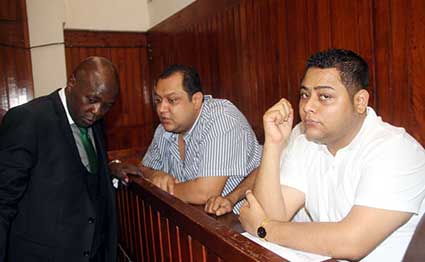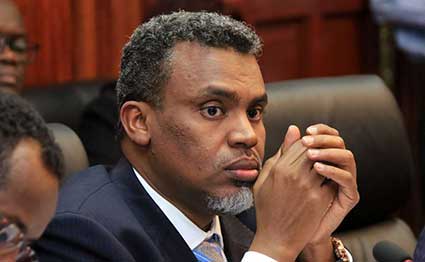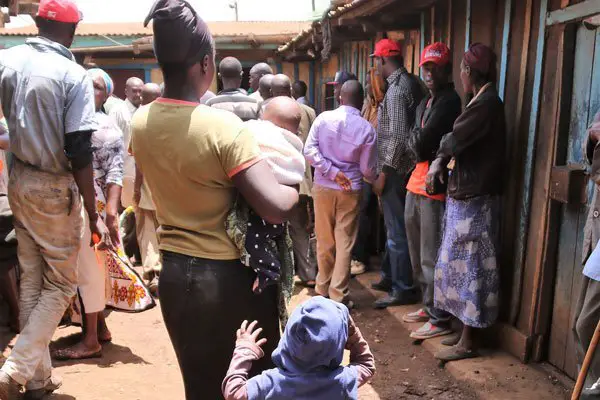Mr Noordin Haji told a local media in an exclusive interview on Friday that Kenya intends to co-operate fully with the United States’ efforts to prosecute more than 10 politicians, judges, businessmen and a lawyer for aiding the Akashas’ world-infamous drug trade.
But it will do so by following the extradition route and following judicial procedure, he said.
Mr Haji added that his office is still awaiting an official request from the United States government regarding individuals that Washington, DC wants to try for various offences related to the Akashas.
The request will determine what action the DPP’s office will take, and whether the named individuals will be tried in the US or locally following investigations.
The Akasha brothers were arrested by Kenyan authorities on January 28 last year in Mombasa alongside Pakistani national Gulam Hussein and Indian national Vijaygiri Goswami, before being handed over to the United States’ Drug Enforcement Agency (DEA) two days later.
On January 30, the DEA bundled the four individuals into a plane and flew them to the United States, where they were slapped with drug trafficking charges.
Baktash and Ibrahim last month pleaded guilty to seven criminal charges, including trafficking in heroin and methamphetamine, popularly known as meth.
At the time, the brothers had filed a case at the Mombasa High Court to stop their extradition to the United States.
On the day of their extradition, Mombasa High Court judge Njoki Mwangi issued an order barring police boss Joseph Boinett and then Director of Criminal Investigations Ndegwa Muhoro from extraditing the drug barons. She also ordered that the Akasha brothers be produced before her.
Balala, Governor Abdi, Mp Oscar Sudi And Judge Chacha Mwita To Face Extradition To US Over Drugs
Mr Haji holds that the Akashas were bundled out in that manner because previous attempts to follow extradition procedures had been frustrated.
“We have not completed the process between us and the US,” Mr Haji said in the interview. “We are privy to the investigations. We know the individuals but we have to wait for the request from the US before naming anyone. The reason extraordinary measures were taken with the Akashas was constant frustration. But at this point the Kenyan government will co-operate. We will try our best to ensure the law is followed.”
The DPP added that even if the US seeks extradition for those named in the Akasha case and the suspects petition the courts to stop the process, his office will stick to the judicial process.
Baktash and Ibrahim also confessed to bribing police and judges — key players in the criminal justice system — to stall their planned extradition to the US.
Hamsi Salim Massa, head of the anti-narcotics unit in the Directorate of Criminal Investigations, told a US court in August that the Kenyan government independently ordered the “expulsion” of the Akasha brothers last year.
A Cabinet secretary, a governor, a top lawyer, a prosecutor, a senior detective, two judges and two magistrates are among scores of prominent Kenyans that the US Department of Justice is investigating over allegations of taking bribes from the Akashas.
Mr Haji, in the interview, clarified that he has no personal vendetta against the Judiciary, nor are the two institutions at loggerheads, adding that there a few corrupt individuals in the criminal justice system at large.
Since Deputy Chief Justice Philomena Mwilu was arrested for abuse of office and other offences related to questionable dealings with the collapsed Imperial Bank, there has been speculation that Mr Haji is at war with the Judiciary.
But the DPP insists that most judicial officers are working hard, and that their efforts are being watered down by a few corrupt elements within the system.
He is treating the matters individually, and says there are four audit-related cases being investigated by the DCI and the Ethics and Anti-Corruption Commission, and that two of them are nearing completion.
“Corruption is there within the criminal justice system, it is not just the Judiciary. I have said before that most of the people in the Judiciary are doing a good job. There are some corrupt police officers, prosecutors and actually even in the Executive. Everyone (in the justice system) should take responsibility,” Mr Haji said.


















































